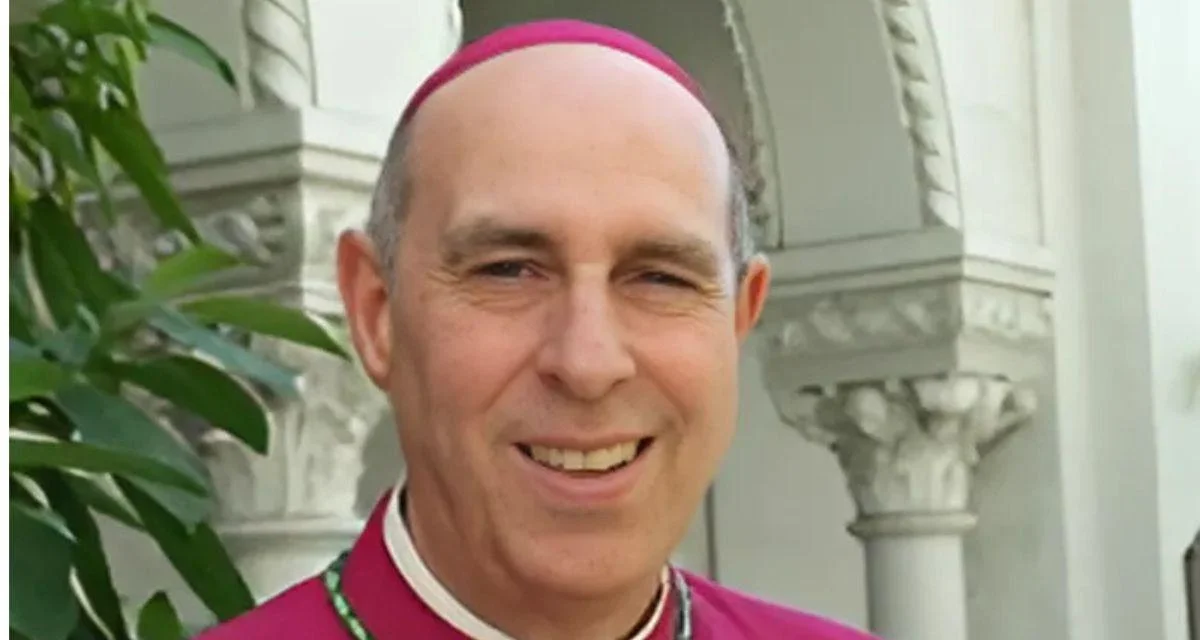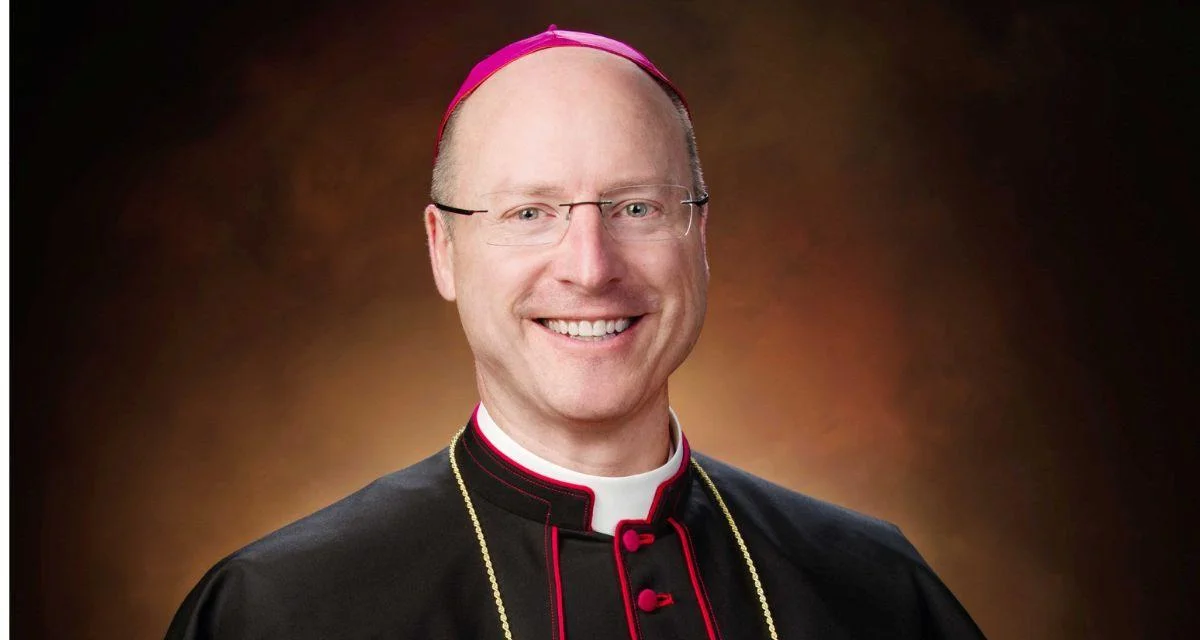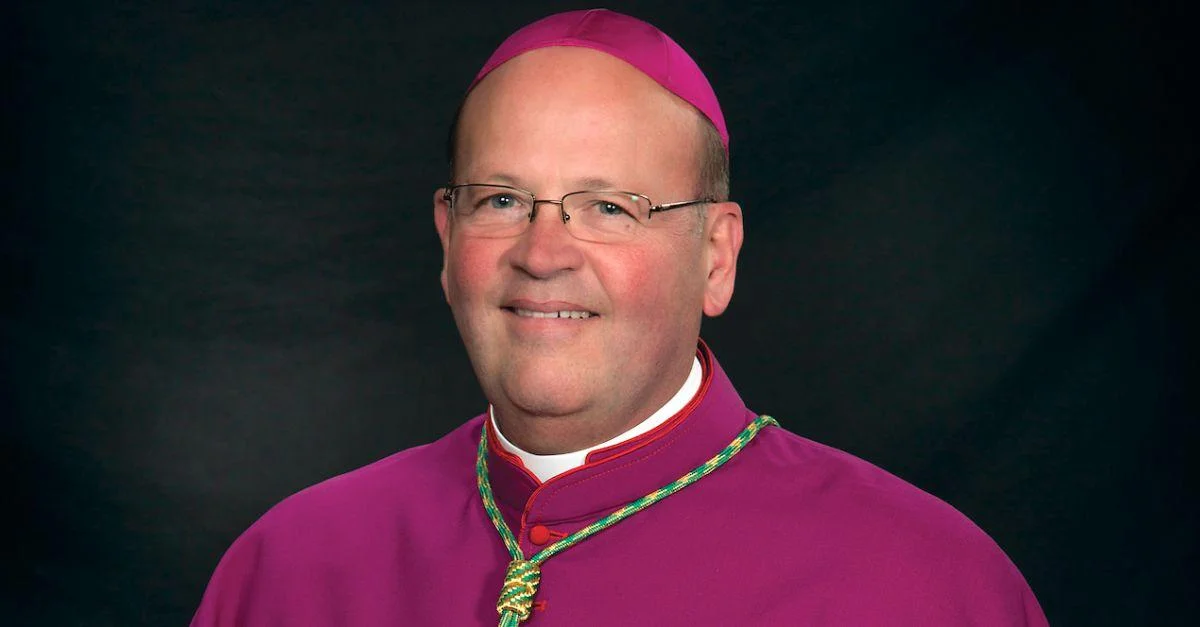
Bishop Thomas John Paprocki | Diocese of Springfield
When someone dies, I often hear loved ones and even ministers say, “They are better off now, with Jesus in heaven.” As Catholics believe in purgatory, what words of sympathy can we say without agreeing with their assumptions?
Judy in Springfield
Thank you, Judy, for bringing up a conversation most of us have witnessed or been a part of. As St. Paul reminded the church in Corinth, we cannot imagine “what God has prepared for those who love him” (1 Cor. 2:9).
Of course, everyone will be better off with Jesus in heaven, so we are called not to grieve as those who have no hope but to grieve with hope.
“We do not want you to be unaware, brothers, about those who have fallen asleep so that you may not grieve like the rest who have no hope. For if we believe that Jesus died and rose, so too will God, through Jesus, bring with him those who have fallen asleep” (1 Thess. 4:13-14).
While we always remember that outside of the Church canonizing someone a saint, we can never know with certainty that a specific individual is in heaven. We want to be with those we love and grieve them when they leave us. We grieve hoping they clung to Christ to the last or chose Him at the last.
Many have had a sense of receiving “messages or signs” from deceased loved ones that they are “OK,” that they have arrived “home in heaven.” That “gift” can be a consolation. Embrace it and treasure it. Our ongoing relationship with those who have died is one of the greatest consolations of our Catholic faith.
In discussing the instinctive desire within the human heart to pray for those who have died—a reality which presumes purgatory (knowing that the souls in heaven have no need of our prayers and those in hell are beyond their reach)—I find children instinctively get it.
Those of the generations who grew up with The Wizard of Oz will recall how Dorothy and her friends desired an audience with the wizard but first needed to get “cleaned up a little bit.” Purified and cleansed, they were ready to more fully receive amazing gifts from the man behind the curtain. To continue the image, we know just as Auntie Em never stopped praying for Dorothy until she was really safely home; so too our prayers and sacrifices for loved ones gone before us have real efficacy as their souls must “get cleaned up” before they enter the perfection of heaven.
All that said, I have found in situations like yours; you can say: “I am sorry for your loss. Your family is in my prayers.” When you tell them you’ll be praying for their “family,” it includes both living members and also the one who just died. For those who don’t agree with Church teaching on purgatory, hearing that their “family” is being prayed for gives them comfort and avoids starting a debate about purgatory during immediate grieving.
From our Jewish forbears in the Old Testament to St. Paul in the New Testament—from the Church of the first centuries after Christ to celebrating Eucharistic sacrifice—God’s people have always prayed and sacrificed for the dead. These actions are comforting forms of direct action for our faithful departed. In our prayers for both living and dead, we fulfill our participation in Communion of Saints bringing comfort and consolation to ourselves and all awaiting heavenly life. We can offer daily sacrifices such as rosaries, cemetery visits, and sharing holy Eucharist at Mass which unites us to Christ and all belonging to Christ's souls in purgatory.
Finally, this is a beautiful Catholic prayer you can turn to while praying for anyone who has died:
Eternal rest grant unto them O Lord,
and let perpetual light shine upon them.
May their souls
and all faithful departed,
through God's mercy,
rest in peace.
Amen.
Father John Titus is pastor at Immaculate Conception Parish in Mattoon and St. Columcille Parish in Sullivan.





 Alerts Sign-up
Alerts Sign-up